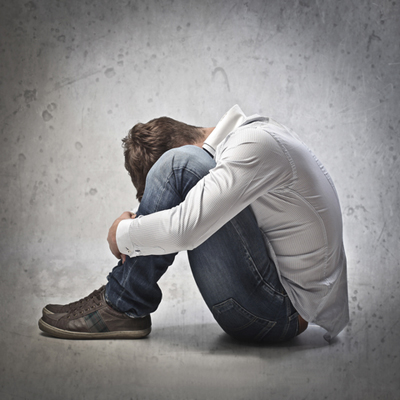 Sadness
May 2013 sees the publication of the fifth edition of the Diagnostic and Statistical Manual of Mental Disorders (DSM). This publication, produced by the American Psychiatric Association, is the result of a comprehensive process of revision and updating that started in 1999. In most fields of medicine such an endeavour might be welcomed unequivocally as a sign of the continuing contribution that scientific research makes to human health and well-being. However, even before its release the DSM-5 came under attack from certain health professionals and service users. The critics can broadly be divided into two camps: those who are opposed to mental health problems being classed as medical disorders and those who feel that there is a role for psychiatric diagnosis, but fear that too many human conditions are coming to be seen as illnesses rather than as problems in life.
Sadness
May 2013 sees the publication of the fifth edition of the Diagnostic and Statistical Manual of Mental Disorders (DSM). This publication, produced by the American Psychiatric Association, is the result of a comprehensive process of revision and updating that started in 1999. In most fields of medicine such an endeavour might be welcomed unequivocally as a sign of the continuing contribution that scientific research makes to human health and well-being. However, even before its release the DSM-5 came under attack from certain health professionals and service users. The critics can broadly be divided into two camps: those who are opposed to mental health problems being classed as medical disorders and those who feel that there is a role for psychiatric diagnosis, but fear that too many human conditions are coming to be seen as illnesses rather than as problems in life.
The first edition of the DSM, published in 1952, listed just over 100 mental disorders. By the fourth edition that list had almost tripled and the fifth edition identifies a similar number of disorders. The concern about the new DSM is not that it has drastically increased the scope of psychiatry (although it does include some new conditions including ‘hoarding disorder’ and ‘Internet use gaming disorder’), but rather that it perpetuates medical claims on what continues to be disputed territory.
The DSM and the other major diagnostic manual The International Classification of Diseases (ICD) follow medical practice in identifying clusters of symptoms which are used to diagnose an underlying disorder for which treatment (usually medication) can be prescribed. The clinical psychology division of the British Psychological Society has come out against this medical approach, challenging the idea that such conditions can be classified as illnesses which should mainly be treated with drugs . These psychologists propose an alternative model in which challenging social and psychological factors are seen as causing mental health problems. From this starting point they argue that the proper focus of treatment would be helping individuals to deal with the trauma or difficult circumstances they have experienced. Challenges have also come from within the profession of psychiatry itself with a group of psychiatrists recently launching a campaign to abolish psychiatric diagnoses (see full reference for Bracken and others, 2012 below).
In the USA , where the pharmaceutical industry is proactive in marketing medication for a wide range of conditions, a number of writers have expressed concerns that common experiences such as sadness and shyness are becoming medicalised and seen as a new market for pharmaceuticals (for example, the books The Loss of Sadness: How Psychiatry Transformed Normal Sorrow into Depressive Disorder by Horwitz and Wakefield, and Shyness: How Normal Behavior Became a Sickness by Lane). Similarly in England, where there was a 22% increase in prescriptions of anti-depressants from 2010 to 2011, it appears that people affected by the worsening economic situation are being medicated for their distress.
In the UK psychiatrists assert that they do take a holistic rather than purely bio-medical approach to their work, taking into account the wider social and psychological factors affecting their clients’ lives (see the article ‘Do we need to change the way we are thinking about mental illness?’). There is also no doubt that many service users have found relief from distressing symptoms through taking prescribed medication. Nevertheless, the mental health field has a long history of vigorous debate about the nature of mental health problems, their possible causes and suitable forms of treatment and support. The responses to the new version of the DSM show that this debate is far from over.
Take your learning further with a free course
References
Bracken, P., Thomas, P., Timimi, S., Asen, E., Behr, G., Beuster, C. et al. (2012) ‘Psychiatry beyond the current paradigm’, The British Journal of Psychiatry, Vol. 201, pp.430–434.
British Psychological Society (2013) Time for a Paradigm Shift in Psychiatric Diagnosis
Horwitz, Allan and Wakefield, Jerome, (2007) The Loss of Sadness: How Psychiatry Transformed Normal Sorrow into Depressive Disorder, Oxford: Oxford University Press.
Lane, Christopher (2008) Shyness: How Normal Behavior Became a Sickness, New Haven: Yale University Press.
Wessely, Simon (2013) ‘Do we need to change the way we are thinking about mental illness?’ the Observer, 12 May 2013.





Rate and Review
Rate this article
Review this article
Log into OpenLearn to leave reviews and join in the conversation.
Article reviews